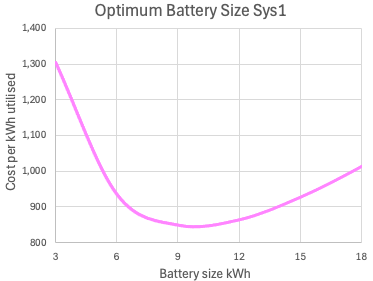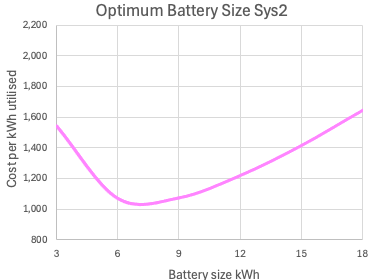Estimated payback times for 8 and 10 panel systems
Initial Design
In this case study we work through calculating the payback time for 8 and 10 panel systems with a battery. I also use battery modelling to correctly size the battery and fine tune the design. The analysis shows that although an 8 panel system won't produce as much energy it can still deliver good returns if it is designed correctly. An 8 panel system is common for smaller roof spaces or homes with lower annual consumption.
In the first round of modelling our two systems are identical except for the number of panels. I am using OpenSolar to model the savings.
System 1 - 10 panels - 4.5kWp
System 2- 8 panels - 3.6kWp
We input the design and the installation cost into the model. For the sake of this example we are using round numbers to make it simpler.
Annual household consumption is set to 3,500kWh, the UK average. The panels are facing south and are tilted at 35 degrees. There is no shade effects.
System 1 results
Installation £9000
Annual output 4525kWh 129% solar
Payback time 7 years 11 months
Total net lifecycle savings £24.1k
System 2 results
Instalation £8500
Annual output 3620kWh 103% solar
Payback time 8 years 7 months
Total net lifecycle savings £20.1k
Fine tune the design
System 1 results
Installation £9000
Annual output 4556kWh 129% solar
Payback time 7 years 11 months
Total net lifecycle savings £24.1k
System 2 results
Installation £7500
Annual output 3620kWh 103% solar
Payback time 7 years 11 months
Total net lifecycle savings £20.1k
It's important to consider if the battery size is suitable for the number of panels. I use our battery sizing software (see this article here) to model the two systems to find the optimum battery size.
The battery modelling finds that the right battery size for System 1 is 10kWh and for system 2 is 7kWh. The graphs below show the results:




I update system 2 to a suitable alternative battery. Changing the battery of system 2 also reduces the installation cost by £1000.
After these changes the results for system 2 are updated:
